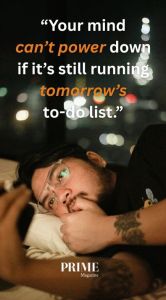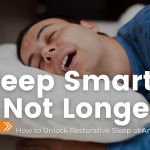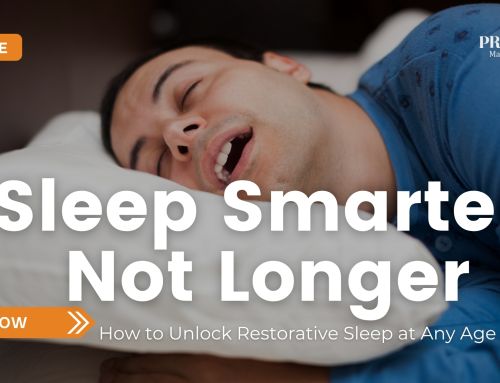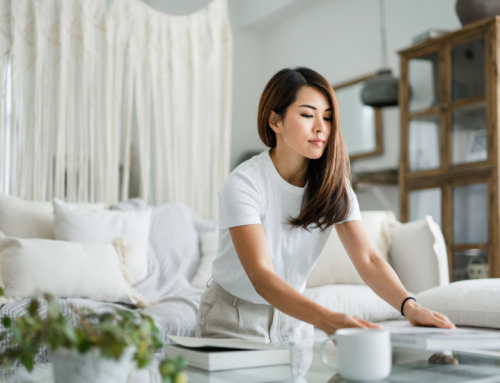
asian man in bed suffering insomnia and sleep disorder
Welcome to the 24-Hour Life
Many adults experience sleep stress in Singapore, juggling long work hours, constant screens, and a mind that never switches off.
It’s 11.45 p.m. and your phone lights up again – just one more scroll before bed, right?
By the time you switch off, your brain feels wired instead of sleepy. Sound familiar?
In Singapore’s always-on culture, stress and technology collide to create restless nights and tired mornings.
How Stress Hijacks Your Sleep

Frustrated asian man sitting on bed in bedroom
Stress isn’t just a feeling – it’s chemistry. When your brain senses pressure, it releases cortisol, the “stay-alert” hormone.
Chronic stress keeps cortisol high, suppresses melatonin, and creates what experts call sleep stress – a pattern of mental overdrive and physical exhaustion common in Singapore’s fast-paced life.
💬 “Your mind can’t power down if it’s still running tomorrow’s to-do list.”
Quote
If you notice a racing heartbeat, tense shoulders, or clenched jaw near bedtime, your stress system is in overdrive – and your body clock can’t reset.
The Screen Trap: Blue Light & Brain Stimulation
Phones, tablets, and laptops emit blue light that delays melatonin and worsens sleep stress in Singapore’s tech-heavy culture.
Beyond the light, late-night content – emails, social media, endless videos – overstimulates the brain, keeping it in “day mode.”
Digital Overload in Numbers

Man in Bed Using Smartphone
-
Average Singaporean spends 6 hours 40 minutes online daily.
-
3 in 5 adults check phones within 5 minutes of waking up.
-
Nearly 70 % use a digital device within an hour before bed.
(Source: local lifestyle surveys, 2025)
Those numbers explain why “I can’t switch off” has become the new national complaint.
Breaking the Loop: From Stress to Calm
The solution isn’t to abandon technology – it’s to set boundaries that let your nervous system cool down. Try these evidence-backed resets:

Light Bulb on White Desk Turned on
-
Create a “digital sunset.”
Turn off screens 30–60 minutes before bed. Read, stretch, or prep for tomorrow instead. -
Use night-mode filters.
Blue-light filters or glasses help, but they’re not magic. Pair them with dim lights and quieter content. -
Journal your worries.
Spend five minutes writing tomorrow’s tasks or emotions. It signals your brain that everything is stored safely for later. -
Practise box breathing.
Inhale 4 seconds, hold 4, exhale 4, hold 4. This slows your heart rate and lowers cortisol naturally. -
Separate work and rest spaces.
If you WFH, avoid using your bed for email or meetings. Physical boundaries cue mental shutdown.

woman working from home
Why Resilience Matters
The link between mental resilience and sleep is two-way. When you rest well, you handle stress better. When you cope well, you rest deeper. Building resilience doesn’t require grand gestures – just consistent habits that calm your body before bedtime.
Simple rituals work best: a warm shower, light music, or a few minutes of gratitude journalling. They tell your nervous system: “You’re safe. It’s time to rest.”
Over time, these habits train your brain to recover faster from daily tension, improving both your mood and your health.
Small Changes Big Impact
-
Cut caffeine by 3 p.m. Less adrenaline at night.
-
Keep evenings lighter. Avoid tackling big decisions late.
-
Add movement. Short evening walks lower cortisol and release endorphins.
-
Schedule worry time. Pick a 15-minute slot earlier in the day to think through problems – then let them go.
Each small step reduces the noise in your nervous system, paving the way for smoother, deeper sleep.
The Weekend Reset

Man using his mobile phone and laptop
Try a simple 48-hour digital detox once a month. No phones at breakfast, no TV before bed. Use that time for sunlight, nature, or real conversations. Most readers who try this notice falling asleep faster within two nights.
If total detox sounds impossible, start smaller: no screens for the first 30 minutes after waking and the last 30 before bed.
The Takeaway

Woman waking up happy
Stress and technology are part of modern life – but sleeplessness doesn’t have to be. By managing stress chemistry and digital habits, you help your body recover its natural rhythm.
Sleep isn’t about discipline; it’s about design. Design your evenings to feel calm, dim, and device-free – and you’ll notice mornings that feel lighter, clearer, and calmer.
Because true resilience begins with rest. PRIME

Happy family













Leave A Comment